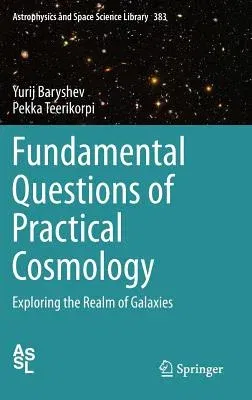Yurij Baryshev
(Author)Fundamental Questions of Practical Cosmology: Exploring the Realm of Galaxies (2012)Hardcover - 2012, 16 October 2011

Qty
1
Turbo
Ships in 2 - 3 days
In Stock
Free Delivery
Cash on Delivery
15 Days
Free Returns
Secure Checkout

Part of Series
Astrophysics and Space Science Library
Part of Series
Astrophysics and Space Science Library (Hardcover)
Print Length
332 pages
Language
English
Publisher
Springer
Date Published
16 Oct 2011
ISBN-10
9400723784
ISBN-13
9789400723788
Description
Product Details
Authors:
Book Edition:
2012
Book Format:
Hardcover
Country of Origin:
NL
Date Published:
16 October 2011
Dimensions:
23.39 x
15.6 x
2.06 cm
Genre:
Science/Technology Aspects
ISBN-10:
9400723784
ISBN-13:
9789400723788
Language:
English
Location:
Dordrecht
Pages:
332
Publisher:
Weight:
666.78 gm